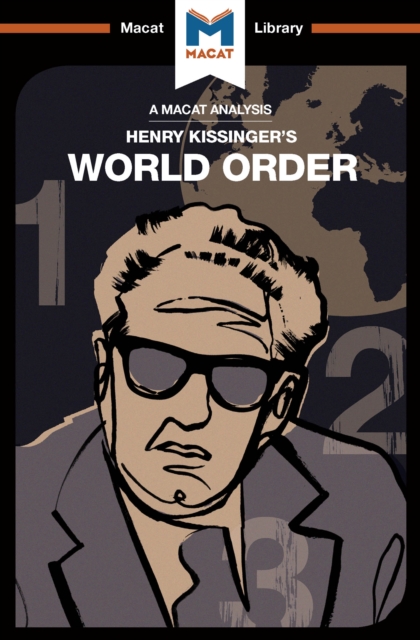
An Analysis of Henry Kissinger's World Order : Reflections on the Character of Nations and the Course of History PDF
by Bryan Gibson
Part of the The Macat Library series
Description
Henry Kissinger’s 2014 book World Order: Reflections on the Character of Nations and the Course of History not only offers a summary of thinking developed throughout a long and highly influential career–it is also an intervention in international relations theory by one of the most famous statesmen of the twentieth century.
Kissinger initially trained as a university professor before becoming Secretary of State to President Richard Nixon in 1973 – a position in which he both won the Nobel Peace Prize and was accused of war crimes by protesters against American military actions in Vietnam.
While a controversial figure, Kissinger is widely agreed to have a unique level of practical and theoretical expertise in politics and international relations – and World Order is the culmination of a lifetime’s experience of work in those fields.
The product of a master of the critical thinking skill of interpretation, World Order takes on the challenge of defining the worldviews at play in global politics today.
Clarifying precisely what is meant by the different notions of ‘order’ imagined by nations across the world, as Kissinger does, highlights the challenges of world politics, and sharpens the focus on efforts to make surmounting these divisions possible.
While Kissinger’s own reputation will likely remain equivocal, there is no doubting the interpretative skills he displays in this engaging and illuminating text.
Information
-
Download - Immediately Available
- Format:PDF
- Pages:104 pages
- Publisher:Taylor & Francis Ltd
- Publication Date:05/07/2017
- Category:
- ISBN:9781351350983
Other Formats
- Paperback / softback from £6.50
- EPUB from £6.29
Information
-
Download - Immediately Available
- Format:PDF
- Pages:104 pages
- Publisher:Taylor & Francis Ltd
- Publication Date:05/07/2017
- Category:
- ISBN:9781351350983










